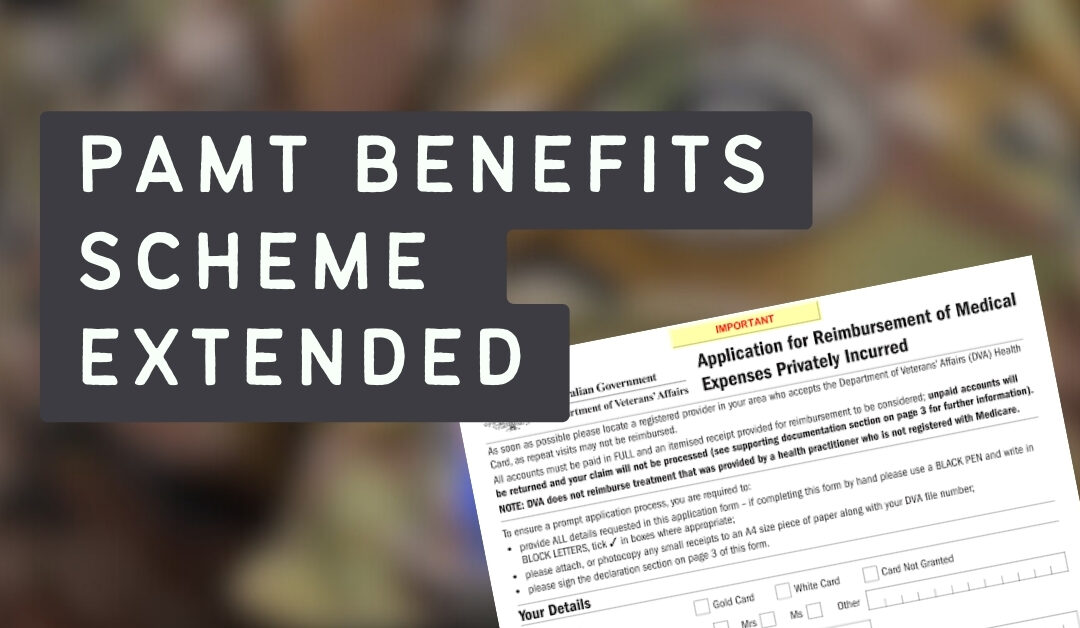A popular benefits scheme allowing veterans to receive free medical treatment while they wait for a claim to be processed has been extended, despite initial concerns it stopped at the end of June.
Eagle-eyed Nashos noticed the Provisional Access to Medical Treatment program was due to end on June 30, as listed until recently on the Department of Veterans’ Affairs website.
- In short: The federal veterans’ affairs department has extended the Provisional Access to Medical Treatment program until mid-2026.
- The veteran community was concerned it had been discontinued.
- The program allows veterans to receive free treatment while they wait for a claim to be processed.
- What’s next? One veteran advocate has called for the government to legislate the program in the landmark reform of the veteran entitlement acts, due to take effect from July 2026.
In an update, the DVA announced it has extended the PAMT until 30 June 2026.
That gives registered veterans until 31 December 2026 to receive treatment through the program.
Brisbane-based veterans advocate Ryan Shaw has been left confused by the situation.
“It is surprising and it is confusing because up until a few days ago we were gearing up to run a campaign to ask why it wasn’t extended, so it’s been kept quiet to be honest,” he said.
“Even today, the conversation we had very early about the dates closing, I had to do a fair bit of digging to even confirm that it had been extended.”
Here is what you need to know about the scheme.
Why was the PAMT brought in?
The PAMT has historically been used as a stopgap to the failings of existing legislation, and it will continue to serve that purpose until the reformed MRCA laws come into effect in July 2026, according to government sources.
The program may also be extended beyond that point.
Mr Shaw said it is an important measure helping veterans access treatment quicker than what is possible under the existing claims process.
“It’s designed to support veterans by providing access to medical treatment while their claims are being processed,” he said.
“I think for some time now the Department of Veterans’ Affairs has had some operational failures; they’ve had massive backlogs on claims processing.
“The average processing time for my period of application was around 18 months, and I always say imagine trying to get critical health care or provisions for healthcare when you can’t.”
Still a trial program
The DVA has run the PAMT as a trial program ever since it commenced in June 2017.
Mr Shaw wants to see it legislated as a permanent offering under the reform of the entitlement acts to avoid any future confusion or angst.
“Moving forward, the best thing they could possibly do is develop some sort of legislative provision for it, so that it’s not just an entitlement trial on top of an amendment determination, on top of another amendment determination,” he said.
“While there’s a legislative reform happening right now, I hope they’re considering putting this in.”
In response, the DVA said the future of the program is still undecided.
“The Government extended the successful PAMT program to 30 June 2026 in the recent Budget at a cost of $10.2 million,” the DVA said in a statement.
“The continuation of the program beyond this date is a matter of consideration by Government through future Budget processes.”
Advice for applicants
Veterans should always check their medical issue is covered by the list of 20 accepted conditions before applying.
“There are only 20 conditions as specified under the PAMT, and most of them are musculoskeletal, with a few hearing and skin conditions, so you have to make sure the condition you’re applying for fits that list,” Mr Shaw said.
It is important not rush into any treatment under the assumption it will be covered.
“Sometimes you’re in a hurry to get things done, so you’ll go to a doctor, go to a specialist, and boom, you’ll have a procedure ready to go — the DVA needs to approve that in some circumstances,” he said.
“So if you’re on a White Card or PAMT, make sure that DVA has given the go-ahead for that surgery.”
The PAMT benefits last as long as it takes for the DVA to resolve a claim.
Successful applicants will continue to have their injuries covered under their White Card or Gold Card, while unsuccessful ones will stop receiving the benefits for any future treatments.
Veterans will not need to repay any bills covered by the program if the government rejects their claim.
If an applicant appeals a decision, the DVA will reinstate their PAMT benefits until the case is resolved.
Applicants are not eligible for the program if they submitted a claim through the VEA.
Full list of 20 accepted conditions:
- achilles tendinopathy and bursitis
- chondromalacia patella
- cut, stab, abrasion and laceration
- dislocation
- fracture
- internal derangement of the knee
- intervertebral disc prolapse
- joint instability
- labral tear
- lumbar spondylosis
- non-melanotic malignant neoplasm of the skin
- osteoarthritis
- plantar fasciitis
- rotator cuff syndrome
- sensorineural hearing loss
- shin splints
- solar keratosis
- sprain and strain
- thoracic spondylosis
- tinnitus
For more information, visit https://www.dva.gov.au/get-support/financial-support/compensation-claims/get-treatment-while-you-wait-claim-pamt

